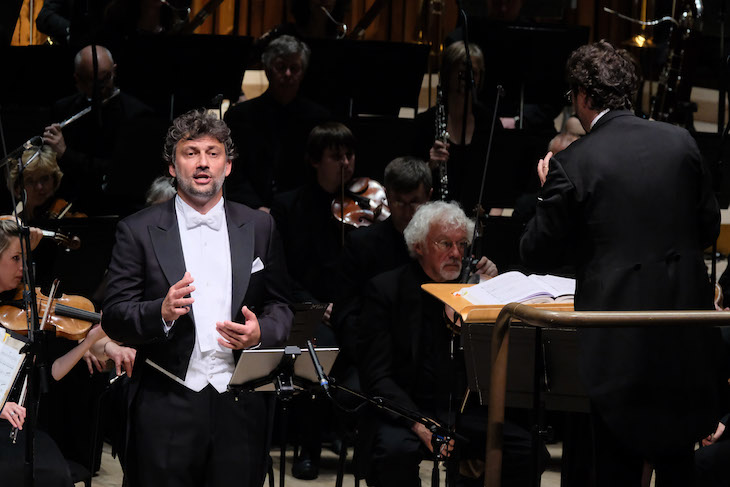No wonder we have a problem with classical music in this country.
The week started in celebration. The stats are in and it turns out that Radio 3’s breakfast show has enjoyed a rise of some 64,000 listeners — a not-to-be-sniffed-at11 per cent increase on last year. Meanwhile Classic FM’s listenership is also up significantly, including a startling 43 per cent rise in under-25s. Champagne (or perhaps something a little less effervescently elitist) all round.
Why are all these new people tuning in? Musical diversity, apparently. That and a preference for music over chat, for radio that offers an escape from the emphatic, combative everyday of John Humphrys and his ilk over on Radio 4. Escape. Retreat. These are the words that come up again and again with classical music — a general perception of the genre not as part of the world but a haven from it, something pleasant but other, unreal, like Disney, Playboy or Center Parcs.
That fantasy is, of course, part of the problem. People don’t listen to classical music so much as use it: to medicate their mood (why pop a pill when a string quartet, taken twice daily, will do the same job?), to soundtrack lives or workplaces into perceived sophistication, to wrap themselves up in like a big aural slanket.
This is why, while radio figures are up, live performances are still in trouble. Classical music has rebranded itself as a tool, and now struggles to persuade as a destination, an event in its own right. That’s partly a marketing problem but it’s also, as two very different concerts this week made clear, a lot to do with what people find in the concert hall when they actually get there.
Exhibit A should have been part of the case for the defence: a sold-out, much-talked-about performance of Strauss’s Four Last Songs by Jonas Kaufmann — the highlight of the superstar tenor’s year-long residency at the Barbican. Every seat was full, and with an audience whose proportion of grey heads was noticeably lower than normal. So what was the problem?
The issue was one of attitude. You’d think a sell-out event full of audience members ripe for conversion (come for the tenor; stay for the symphony!) might have inspired the BBC Symphony Orchestra into something like evangelism, but no. No answering smiles greeted our applause, and when the orchestra began to play under conductor Jochen Rieder it was just as disengaged. Yes, this ensemble has an unusually high proportion of new works to prepare and yes, rehearsal time is at a premium, but the cynicism of serving up so under-rehearsed, so uncherished a performance was overwhelming.
Korngold might be a 20th-century also-ran, but his youthful Schauspiel Overture can swash and buckle in full Hollywood technicolor given even half a chance, and Elgar’s glorious In the South certainly merits more than the cursory approximation it got here. Intonation issues plagued the evening, a crucial solo viola came badly a cropper and if chords sometimes came down together it was by no means a given. What a wasted opportunity.
Kaufmann himself was better, though surprisingly and sometimes distractingly reliant on the digital score in front of him. Drawing us in rather than reaching operatically out, he delivered a sequence of Strauss songs including ‘Ruhe, meine Seele’ and ‘Befreit’ with such gentle care, often lost beneath the orchestra as he searched for the softest shades with which to paint the tender final parting of ‘Befreit’, but swelling ardently forward for the rapturous ‘Heimliche Aufforderung’. Like the BBCSO he obviously hadn’t got the marketing memo that this was a ‘pops’ concert, and so much the better for it.
The Four Last Songs, however, proved more curious experiment than transcendent triumph. Kaufmann, ill at ease, seemed to know this, fighting for the projection and sheen sopranos find so organically in this music, and struggling to smooth arpeggios into delicacy whose height kept pushing him into heroic territory. It was a noble fight and one not without its victories (the cradled opening of ‘Im Abendrot’; the expansive beauty of the third verse of ‘Beim Schlafengehen’, framed by leader Igor Yuzefovich’s solo violin), but the overall effect was of a swan forced to waddle on dry land.
But if the Barbican promised much and couldn’t deliver, then the London Festival of Baroque Music had the opposite problem. French period ensemble Doulce Mémoire gave the most vivacious, instinctive and downright joyous demonstration of chamber music-making in a performance of Claude Le Jeune’s fascinating oddity Le Printemps — a piece that was to the 16th century what rock’n’roll was to the 20th, attacked for ‘corrupting’ and ‘perverting’ the French youth — to a half-empty hall.
Accompanied by programme notes so obscure and academic as to be unreadable and no translations for most of the work’s many verses (in old French dialect), the concert might as well have come with a sign saying ‘Keep Out’. Small wonder a festival official was reduced to pleading for donations at the start. You’d have done better to stay at home and listen to the radio. Perhaps that’s what other people did.






Comments